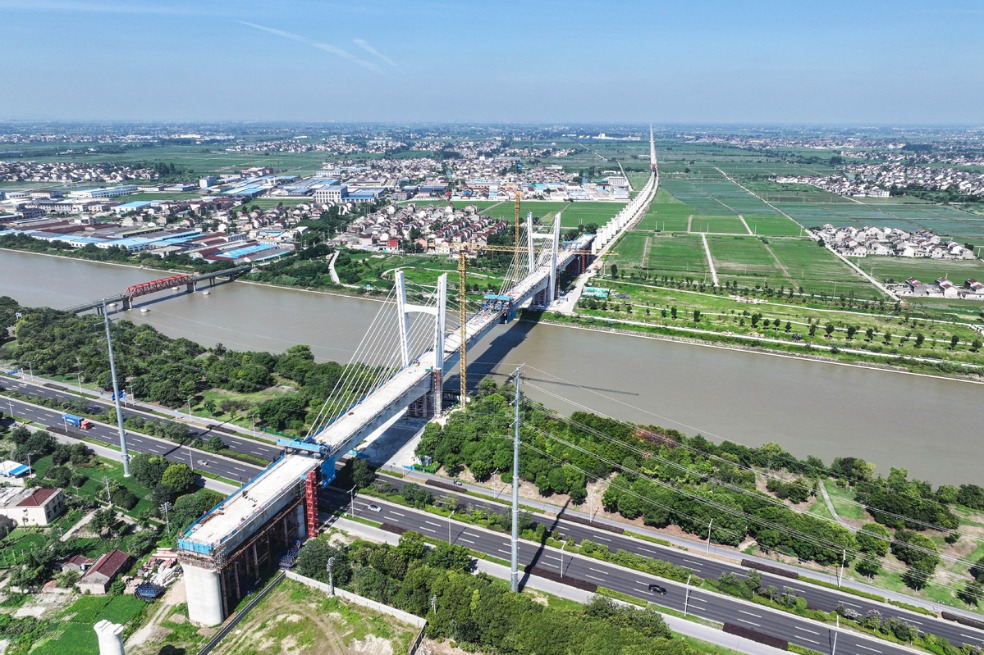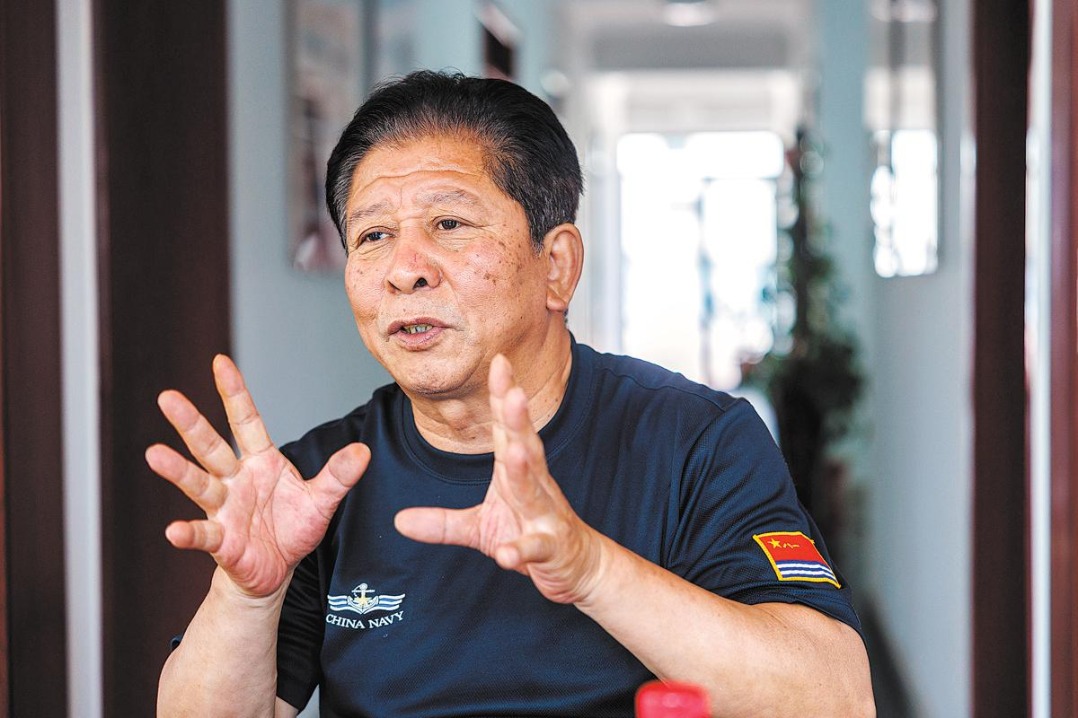Recovery after floods going well

Farmers receive early payments, field drainage underway, experts sent in
Post-disaster recovery and reconstruction work is proceeding well in Wuchang, Heilongjiang province, minimizing the impact of the recent flooding, especially on local farmers' livelihoods, according to senior officials.
Vice-Premier Liu Guozhong outlined the work that needed to be done when he made a research trip to Wuchang on Sunday and Monday.
"It is necessary to organize water drainage in affected fields as soon as possible, send experts to guide farmers to carry out scientific production and self-recovery, and strive to reduce disaster losses," Liu said.
"It is also necessary to promptly repair damaged farmland, water conservancy and other infrastructure to ensure faster recovery of agricultural production."
Liu urged local governments to disperse agricultural disaster relief funds as soon as possible, settle insurance claims in a timely way, optimize credit services, and provide targeted help and support for affected business entities and farmers.
Lying in the lower reaches of the Songhua River in the south of Heilongjiang, Wuchang, a county-level city in Harbin, was hard-hit by the floods.
According to statistics provided by the city's agricultural and rural department, Wuchang has over 168,660 hectares of arable land used for growing rice, of which around 66,660 hectares have been affected by the flooding to different degrees. That is equivalent to almost 40 percent of the city's arable land.
Wuchang rice is famous for its unique flavor and texture, and is grown in fertile black soil. The province's large temperature variances between day and night help produce rice that is high in starch and low in moisture, resulting in a firm, chewy texture.
Wuchang's rice yield was 700,000 metric tons last year.
"The flooded area is mainly located in low-lying land on the riversides," Wang Shouxin, director of Wuchang Agriculture and Rural Affairs Bureau told state broadcaster China Central Television on Sunday. "Most of the high-yield paddy land is not seriously affected," he said, adding that there were no specific statistics yet on production reduction and failure.
In recent days, local governments have organized the draining of water from flooded fields. As of Monday, drainage work on 28,000 hectares of land had been completed.
In seriously affected areas, farmers are spraying foliar fertilizer to accelerate crop growth and increase grain weight. A technical assistance group has been dispatched to affected areas to give guidance on the resumption of production.
About 70 percent of the arable land in Wuchang has agricultural insurance, and insurance companies are currently assessing the impact of the disaster and registering claims.
"We will immediately make an emergency prepayment plan, which means that for large losses of land, we will make a partial payment in advance to the farmers," said Yang Guanghui, manager of the Wuchang branch of China Pacific Property Insurance. "We will make sure that the compensation is paid quickly."
Last year, Heilongjiang saw a grain harvest of 77.63 million tons, accounting for 11.3 percent of the national yield, according to National Bureau of Statistics data.
Although the province has been affected by heavy rainfall recently, very few low-lying plots of Beidahuang Agricultural Reclamation Group have been affected, Heilongjiang's Agriculture and Rural Affairs Department said on Monday.
After the flood, experts inspected the group's seedlings and found the three main crops — rice, corn and soybean — are growing normally, with good harvest conditions.
The company has nearly 3.1 million hectares of arable land, including 1.53 million hectares for growing rice.
"Before the arrival of the heavy rainfall, we had dredged canals, bridges and culverts in the farmland in advance, reduced the storage capacity of the reservoirs and prepared sufficient materials to ensure an effective response after the disaster," said Liang Daoman, general manager of the agricultural development department of the group.
"The group organized disaster prevention and reduction expert teams to carry out technical guidance in the farmlands.
"Professional workers have been sent to drain water, carry out aviation operations to prevent diseases and pests, and add nutritional elements to promote the normal growth of crops," he said. "We are striving to minimize losses and achieve a bumper harvest."
- Karst canyon hides twin waterfalls outside Guiyang
- Veteran recalls motivation for joining war effort in his youth
- Xi Jinping champions the cause of Global South
- China to hold art exhibition for 80th anniversary of victory against Japanese aggression, fascism
- China to release TV productions marking 80th anniversary of victory against Japanese aggression, fascism
- China to stage performances marking 80th anniversary of victory against Japanese aggression, fascism





































